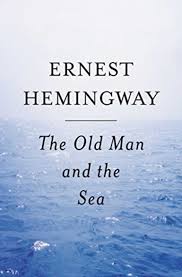
During late summer this year, Staff Sgt. Timothy Opinaldo was part of a joint operation of intelligence analysts from Task Force Diablo and 4th Brigade Combat Team, 1st Armored Division to train and integrate Iraqi analysts. Together, they provided intelligence support for a joint operation pursuing and detaining insurgents.
For Opinaldo and the other members of Task Force Diablo, this joint operation trained their Iraqi counterparts in the American method of intelligence work, which is very different from the Iraqi model. The analysts and their counterpart unit, the 10th Iraqi Infantry Division, are trained for nine weeks. American analysts are trained for 18 weeks.
“Their army is officer-centric. An individual Iraqi analyst works on just one piece of a large intelligence project,” Opinaldo said. “The officer in charge controls the flow of information. He creates the picture from the pieces the individual analysts provide. In the American model, analysts keep the larger picture in view when working on any individual piece.”
Opinaldo worked with Sgt. Bradley Dickey, Maj. Brett Feddersen, and 1st Lt. Carolina Kelley on the project in addition to analysts from 4-1 AD. While the Americans trained the Iraqis in their model of intelligence work, the Iraqis gave their counterparts some valuable lessons in Iraqi culture.
“The Iraqis gave us information that allowed us to better evaluate situations,” Opinaldo said. “They told us there are few weddings in the summer heat and none during Ramadan. Weddings are low-key and humble with minimal 20th Century influence. Iraqis don’t fire machine guns at weddings.”
“We also learned that every large group is not necessarily bad guys,” he said. “Three days of large feasts mark the end of Ramadan.”
Opinaldo had to re-adjust to eastern physical closeness during his month with his Iraqi counterparts. He previously deployed to Afghanistan and remembered how different eastern and western men are about touching, but he still had to adjust. “When you shake hands, you are not letting go for five minutes,” he said. “One guy held my hand during an entire meeting.”
Opinaldo also made clear that fussy eaters can’t do intelligence field work. “They share everything,” he said. “If they offer food, you have to eat it.” Opinaldo said tea is a past time with Iraqis and they drink both tea and coffee very strong. Despite all that caffeine, the Iraqis are much more concerned about relationships than time efficiency. “The first 60 minutes of every meeting includes about five minutes of work,” Opinaldo said.
By then end of the month, Opinaldo and other members of the team were making jokes, an important indicator of how close their relationship had grown. Many of the men they worked with were fathers and referred to each other as ‘Abu’ with their child’s name. Opinaldo was “Abu Alana” because his daughter’s name is Alana. In one of the jokes they shared, the Iraqis called Opinaldo “Abu Dickey” because he was Sgt. Dickey’s immediate supervisor. Dickey is also most of a foot taller than his “father.”
With a month of working face-to-face with his Iraqi counterparts, Opinaldo got a chance to really learn the culture. “It was the best month of the deployment,” he said. “No question


